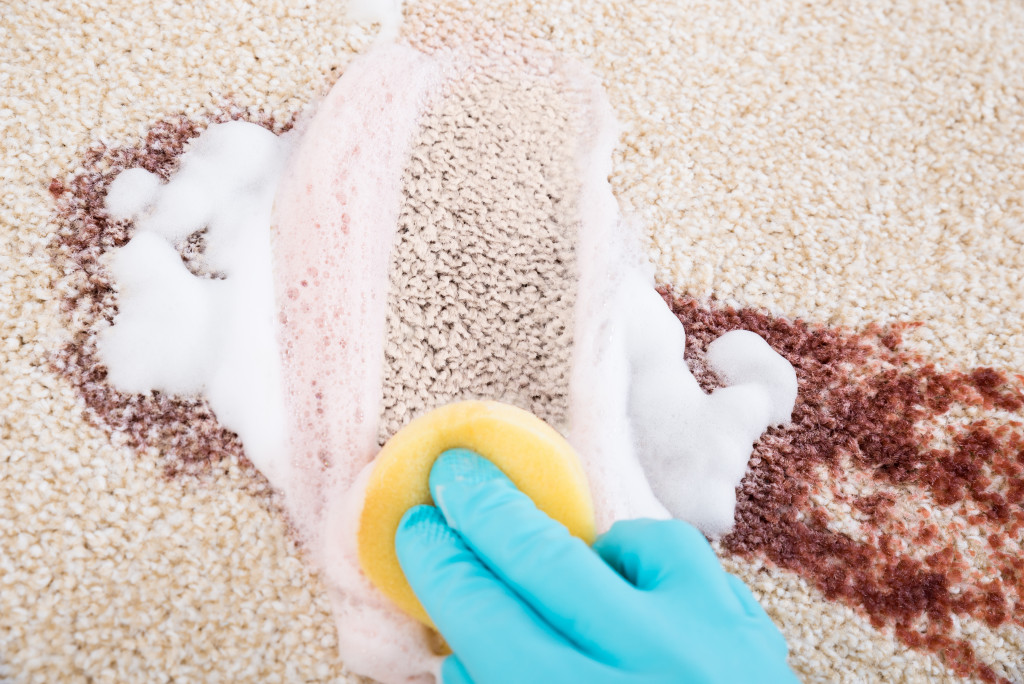Disclaimer: This website provides health information for educational purposes only and is not a substitute for professional medical advice, diagnosis, or treatment. Always seek the guidance of a qualified healthcare provider with any questions you may have.
Bacteria and germs are present everywhere in our environment, including in our homes. While some bacteria are necessary for our health, others can cause disease. To prevent the growth of harmful bacteria, we must practice good hygiene and keep our homes clean. This article will discuss ways to prevent the growth of bacteria and germs in your house and keep your home healthy and clean.
Deep Clean Frequently
Deep cleaning your house regularly is one of the best ways to prevent the growth of bacteria and germs. While it’s important to keep surfaces clean, it’s equally important to disinfect them. This means using a cleaning product designed to kill bacteria and viruses. When choosing a disinfectant, look for one approved by the Environmental Protection Agency (EPA).
Be sure to follow the instructions on the label, as some products require a specific contact time to be effective. Generally, it’s best to deep clean your house at least once a week. However, you may need to clean more often if someone in your household is sick or if you have pets. One of the places that can easily become a house of bacteria is a carpet. Carpets are prone to accumulate dust, bacteria, and germs. Hence, it is best to hire a carpet cleaning company. These companies can help deep clean carpets so that everything remains clean. They can also help you with the right tools required for the most efficient cleaning.
Keep Your Home Well Ventilated
Proper ventilation is key to keeping your home free of bacteria and germs. Indoor spaces are notoriously stagnant, especially in the winter when windows are sealed tight to keep out the cold. This lack of airflow creates the perfect environment for bacteria and viruses to thrive. Studies have shown that poor ventilation can increase the rate of illness by up to 10 times.
You can take a few simple steps to improve the ventilation in your home and reduce the risk of illness. First, open your windows regularly to let in the fresh air. You can also install an exhaust fan in your kitchen and bathroom to help remove moisture and odors from the air. By taking these simple steps, you can help keep your home clean and healthy.
Avoiding Moisture
Bacteria and germs thrive in moist environments. That’s why it’s essential to keep your home dry, especially in areas with a lot of moisture, such as the bathroom and kitchen. One way to do this is to use a dehumidifier to remove excess moisture from the air. You should also avoid using fans, which can circulate moist air and make it easier for bacteria and germs to spread.

In addition, you should regularly clean wet areas such as showers and toilets with a disinfectant cleaner. By taking these simple steps, you can help prevent the growth of bacteria and germs in your home.
Declutter Your House
A cluttered house is the perfect breeding ground for bacteria and germs. Dust mites, tiny creatures that thrive in dirty environments, cause respiratory problems, such as asthma and allergies.
In addition, clutter provides a perfect hiding place for cockroaches and other pests, which can spread disease. And if that wasn’t enough, a messy house also makes it difficult to clean properly, which means dirt and grime build up more quickly. The bottom line is that decluttering your house is essential for preventing the growth of bacteria and germs. Not only will it make your home more enjoyable to live in, but it will also help to keep your family healthy.
Use of Disinfectants
Disinfectants are essential in preventing the growth of bacteria and germs in your house. However, it is essential to use them correctly to be effective. First, choosing a disinfectant appropriate for the surface you are cleaning is important. There are many types of disinfectants available, each designed to be used on specific surfaces.
For example, some disinfectants can be used on countertops and floors, but there are also specialized disinfectants for toilets and sinks. Second, you must follow the instructions on the label carefully. Most disinfectants require you to leave them on the surface for a long time to be effective. Once you have finished cleaning with the disinfectant, you should rinse the surface with clean water. By taking these simple steps, you can help prevent the growth of bacteria and germs in your home.
Avoiding Cross-Contamination
Cross-contamination is one of the leading causes of bacteria and germ growth in the home. When different types of food come into contact with each other, they can transfer bacteria and germs, leading to illness. The best way to prevent cross-contamination is to keep food separate. Raw meat, poultry, and seafood should be stored in separate containers from cooked food. Fruits and vegetables should also be stored separately, as they can harbor bacteria contaminating other foods.
In addition, it is important to wash your hands thoroughly after handling raw food and clean all surfaces that come into contact with raw food. By taking these simple precautions, you can help to prevent the growth of bacteria and germs in your home.
Taking simple steps to avoid moisture, declutter your house, use disinfectants correctly, and prevent cross-contamination can help you prevent the growth of bacteria and germs in your home. Taking these measures can create a cleaner and healthier environment for yourself and your family.




